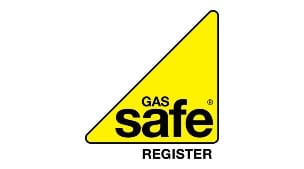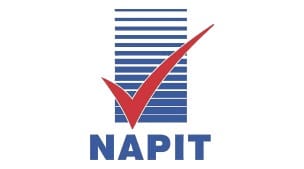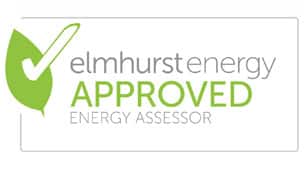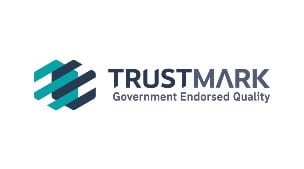- Home
- Electrical Certificates
- Gas Certificates
- EPC
- PAT Testing
- Property Services
- News
- About
- Contact
Qs & As
All Gas Appliances in a property have to be tested in an inspection, owned by the landlord.
Yes – It will be classed as At Risk.
Source: Gas Safe Register:
Some properties, mainly flats and apartments, have been built with boiler flues which cannot be inspected because they are hidden behind walls or ceilings. From 1 January 2013, any Gas Safe registered engineer will classify the boiler as At Risk, this means that they will turn the boiler OFF until inspection hatches have been fitted in appropriate places.
Yes. So long as the electronic copy is:
- capable of being reproduced in hard copy format when required (e.g. for the tenant/HSE/housing department)
- secure from loss and interference
- Uniquely identifies the gas operative who carried out the safety check e.g. an electronic signature, a scanned signature, a payroll number unique to the operative, the name of the operative etc; the employer needs to have secure systems that link the individual operative to the unique identifier.
A landlord or gas engineer, with the landlord’s agreement, may send or give a copy of the electronic record directly to the tenant, providing the tenant is happy with this arrangement and has the ability to access it.
The Gas Safety (Installation and Use) Regulations state that landlords must only use a Gas Safe registered engineer for maintenance and safety checks on gas equipment they own and provide for tenants use in domestic premises.
From the 1st October 2015, it is now legislation that every rental property should have a smoke alarm on every floor of a property, and if the property has a solid fuel gas appliance a CO alarm is mandatory.
This could be down to two reasons, gas safe regulation has changed or the engineer(s) you have used in the past did not inspect your property according to regulation. If in doubt of your assessment please call Gas Safe on 0800 408 5500.
If paid in advance, you will receive your Gas Safety Certificate within 24 hours. Also once payment is made you will be able to download your certificates from the customer portal.
On your Gas Safety Certificate it will indicate if your certificate has failed by stating if either or all appliances are ‘Not Safe to use’ as a tick box. At the bottom of the gas certificate it will also state the failure findings with a code. Below you will find the definitions of what each code means.
‘Immediately Dangerous’ (ID)
An “immediately dangerous” installation is one which, if operated or left connected to a gas supply, is considered to be an immediate danger to life or property.
The installation will be disconnected, with your permission, and must not be used until the necessary work has been carried out to repair the defect(s). If you continue to use an immediately dangerous installation you could be putting you or your family’s lives in danger.
If you refuse the gas engineer permission to disconnect the installation or an individual appliance, they will report the situation to the Gas Emergency Service Provider (ESP). The ESP has legal powers to demand entry to make the situation safe or may disconnect the gas supply to the property.
‘At Risk’ (AR)
An “at risk” installation is where one or more recognised faults are present which could constitute a danger to life or property without further faults developing.
With your permission, the installation will be turned off and should not be used again until the fault has been repaired.
‘Not to Current Standards’ (NCS)
Over time, industry standards may change and, as a result, existing installations may not always meet the current safety requirements. A “not to current standards” installation is one which does not meet with current standards, but is safe. You may however wish to improve the installation to meet current standards as this could improve the reliability and lifespan of the installation. If the installation has been carried out recently, you should contact the registered gas business that carried out the work to correct any identified faults. For older installations your gas engineer can advise you whether the installation should be brought in line with current standards.
It is always a good idea to bring an installation up to current standards, but that will often depend upon whether the work can be undertaken at reasonable cost, or whether any other work is likely to be carried out on the installation in the near future, such as a replacement appliance.
If a flue is not sealed, it means that the gap surrounding flue inside the external wall is not sealed with sand and cement (Internally and externally). Sometimes a rubber seal can be used externally, but it has to state this in the boiler manual instructions that this is an approved method. Sealing the flue prevents emissions going back into the building and helps support the flue.
The National Grid offers a free service, we would usually call them if:
- The gas meter is faulty or the emergency control valve is not working properly (this is used to shut gas off – immediately dangerous if you cannot shut the gas off in an emergency;
- Your gas reading is giving a high or low reading of working pressure;
- If you do not give consent for us to shut the gas off if we have advised your are not safe with the gas on such as a gas leak.
As a landlord, you are responsible for the safety of your tenants. The Gas Safety (Installation and Use) Regulations 1998 deal with landlords’ duties to make sure gas appliances, fittings and flues provided for tenants are safe.
Appliances, fittings and flues in a communal area but which may be used by tenants are also included. You are responsible for the maintenance and repair of flues,appliances and pipework provided for your tenants use ;by a Gas Safe Registered engineer. Although there is no prescribed timeframe for these duties, good practice would be the demonstration of regular, annual maintenance checks and subsequent repairs.
You are also responsible for ensuring an annual gas safety check is carried out within 12 months of the installation of a new appliance or flue which you provide and annually thereafter by a Gas Safe Registered engineer. You must keep a record of the safety check for 2 years and issue a copy to each existing tenant within 28 days of the check being completed and issue a copy to any new tenants before they move in.
The gas safety check record is a record of the results of the checks carried out for the annual gas safety check. It should be issued on completion of the checks and not delayed even if defects are found or until necessary remedial action has been taken.
The record is a ‘living document’ and landlords should supplement it with records of any follow up action taken (if required). This would provide a full record of the gas safety within the property.
You should not assume that an annual service inspection includes the points required by a safety check; neither should you assume that carrying out an annual gas safety check will be sufficient to provide effective maintenance. The advice of a competent Gas Safe registered engineer should be taken where necessary on action required.
If a gas appliance has been switched off by a Gas Safe registered engineer it is because it is unsafe and should not be used. No matter how inconvenient the situation is for the tenant such action helps to ensure their safety. If a heating appliance has been disconnected then you must provide your tenant with emergency heating, for more information on this contact your local authority whilst arranging for appropriate remedial work by a Gas Safe registered engineer
You are putting lives at risk and breaking the law. Landlord Certificates Ltd gives gas safety a high priority and will take the appropriate action to ensure compliance with the regulations; this could result in a substantial fine and/or a custodial sentence.
To help operate safely, all gas appliances need the following:
- an adequate supply of air to help the complete combustion of gas;
- efficient operation of their flue to remove any combustion products, including carbon monoxide (CO), that are produced
Without these safety precautions dangerous levels of carbon monoxide can build up with the possibility of fatal consequences. There are some easy ways to help avoid the build up of carbon monoxide poisoning:
- never block ventilation;
- ensure that flues are kept clear at all times;
- have your appliance regularly maintained and annually serviced by a Gas Safe registered engineer.
Testimonials
What our clients say




